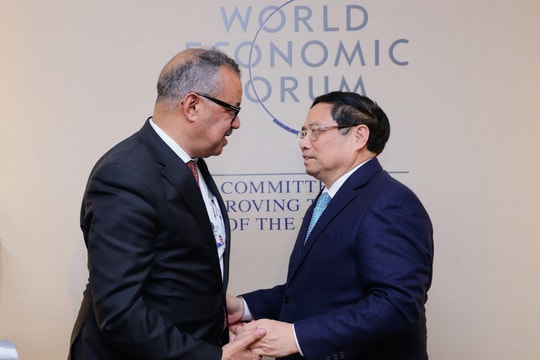WHO Director-General and the 'double bomb' during his term
(Baonghean) - When the Covid-19 pandemic began to sweep across the globe, one figure became familiar to the public: Tedros Adhanom Ghebreyesus - Director-General of the World Health Organization (WHO). His familiarity was not only because he was the one who regularly made announcements for the World Health Organization, but also because of the controversies surrounding the WHO's operations.
From childhood experience…
When he took on his new role as WHO Director-General two and a half years ago, Tedros pledged to reform the WHO and tackle diseases that kill millions of people each year, such as malaria, measles, and HIV/AIDS. In an article in the Lancet medical journal that same year, Tedros asserted that it was an opportunity for him to achieve “universal health coverage” – a goal he called his “lifelong challenge”.
“All roads lead to universal health coverage, and this is my top priority at WHO. Universal health coverage is a moral imperative. With coverage, people will not die of poverty and destitution,” he wrote shortly after taking office. That goal was shaped by his haunting childhood experiences.
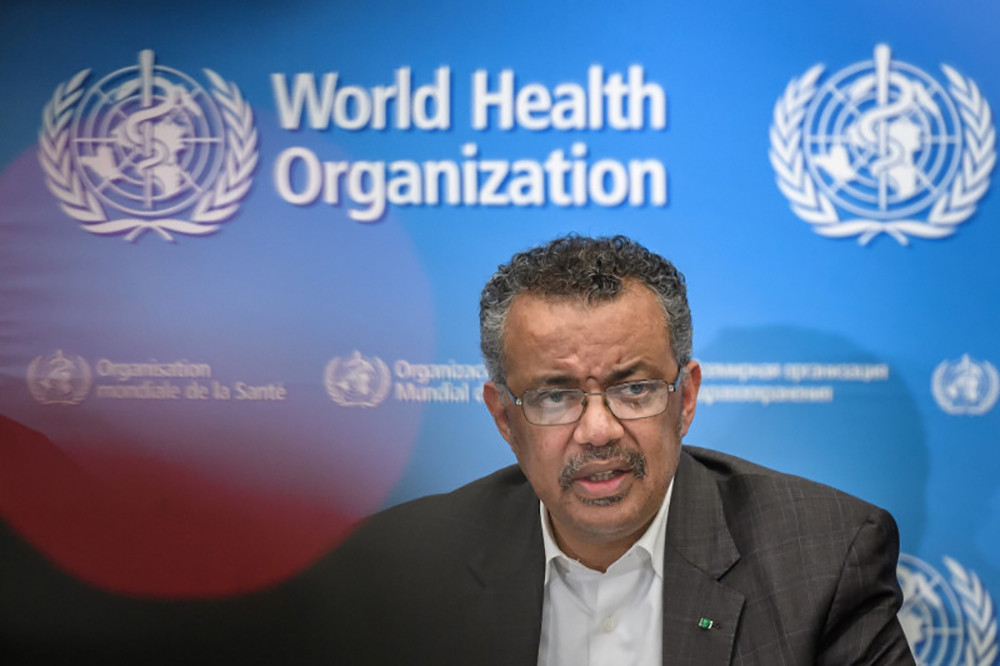 |
| World Health Organization (WHO) Director-General Tedros Adhanom Ghebreyesus. Photo: Getty Images |
When Tedros was seven years old and living in Ethiopia, his younger brother died of a mysterious disease, suspected to be measles. “I still can’t accept that,” Dr. Tedros, 55, told Time magazine in a 2019 interview. His childhood losses left him deeply concerned about the injustices of a world where children can live or die based solely on the strength of their country’s health care system. It inspired him to do something to prevent anyone from having to go through those terrible experiences.
Dr Tedros began his medical career in Ethiopia, where he earned a Bachelor of Science in Biology in 1986 from Asmara University, his home country. He then went to the UK to study for a Master of Science in Infectious Disease Immunology from the London School of Hygiene and Tropical Medicine on a WHO scholarship and a PhD in Public Health from the University of Nottingham.
Tedros is also a member of the Tigray People's Liberation Front party and was appointed as Ethiopia's Minister of Health from 2005 to 2012. During this time, he received widespread credit for his efforts to reform the country's health system, such as reducing maternal mortality, training and deploying 38,000 community health workers across Ethiopia... From 2012 to 2016, he was Ethiopia's Foreign Minister - a stepping stone for him to run for the position of WHO Director-General.
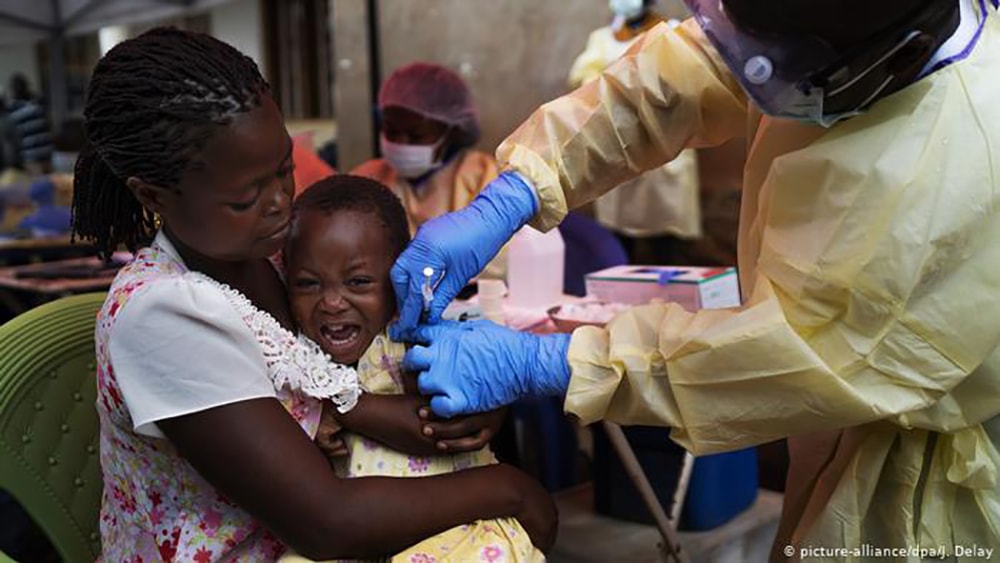 |
| The weak health systems of African countries are what motivated Mr. Tedros to pursue “universal health coverage.” Photo: DW |
Supporters describe him as charismatic, courageous and friendly. At his first press conference in his new position, Mr. Tedros impressed journalists. He smiled and spoke in a relaxed, soft voice. But behind that demeanor was a determined man.
“I have known Dr Tedros for 27 years... He is a man of principle and calm, steady, courageous leadership,” said Laura Hammond, a professor at the University of London. Suerie Moon, co-director of the Centre for Global Health, stressed on Twitter that “Tedros has proven himself to be a strong, skilled leader and experienced diplomat.”
However, critics say he is more of a politician than a health official. During his campaign for the position of WHO Director-General, Mr. Tedros was accused of covering up possible cholera outbreaks in Ethiopia in 2006, 2009 and 2011. He denied doing so and claimed it was a “trick” to “knock” him out in the race. Then, in 2017, after taking office at WHO, Tedros caused controversy when he appointed Zimbabwean President Robert Mugabe as a WHO goodwill ambassador, a decision he later had to reverse amid criticism focused on the late Zimbabwean leader’s dictatorship. Criticism of Mr. Tedros has resurfaced as the world faces the worst Covid-19 pandemic.
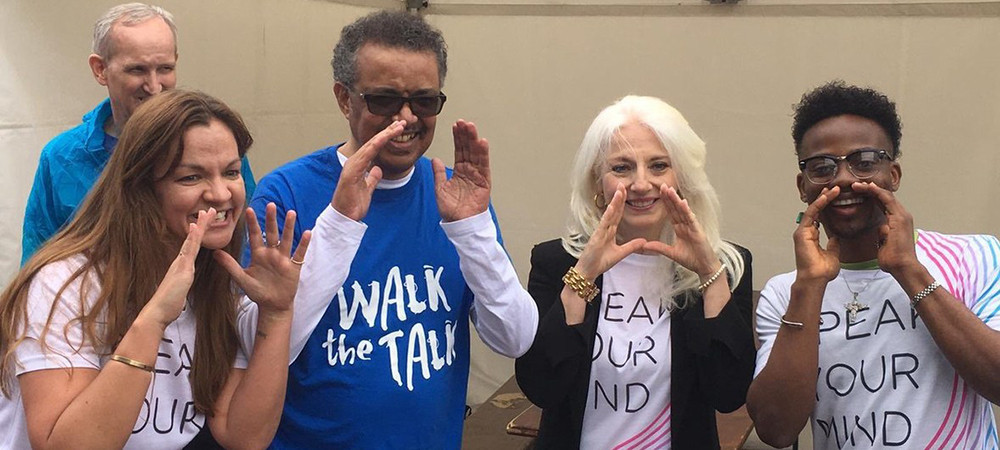 |
| Mr. Tedros attended an event calling for "A sustainable health future" in Switzerland. Photo: Twitter |
To the "Double Bomb" in career
The Covid-19 pandemic and US President Donald Trump's threat to stop funding the WHO have become an unprecedented challenge for the head of this health organization. Since the outbreak in Wuhan and then rapidly spreading to almost all countries in the world with immeasurable damage, the WHO has had to take on global responsibility in responding to the epidemic when its resources are still limited.
With an annual budget of $2.5 billion that has barely changed in three decades, it is fair to say that with less money than many major hospitals in the US, it will be difficult for the WHO to meet the growing global health needs.
In addition, the WHO is also under great pressure from criticism from many countries about its response to the epidemic. In the context of the increasingly serious epidemic, many people have "blamed" the WHO for its slow responses, such as not announcing the danger level of the SARS-CoV-2 virus earlier or not taking decisive steps to respond urgently to the epidemic...
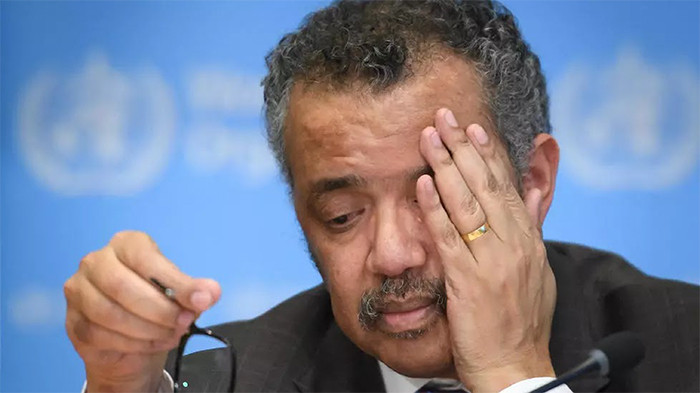 |
| WHO Director-General Tedros Adhanom Ghebreyesus has faced great pressure since the outbreak of the Covid 19 pandemic. Photo: AFP |
Over the past two months, a public petition posted online calling for Tedros Adhanom Ghebreyesus to resign as WHO Director-General has garnered 800,000 signatures, 10 times more than the number of people who signed a petition in support of him.
The most recent was the US response when President Donald Trump announced to stop funding the WHO because of the organization's "poor" handling of the global Covid-19 outbreak. Observers said that this move by the US was partly because of its "dislike" of multilateral organizations like the WHO, and partly because it was an "excuse" to target China. Previously, the US leader criticized the WHO Director-General for being "biased" toward China.
Some US newspapers believe that China is the country that has had a lot of influence to help Mr. Tedros get his current position. China is said to have used financial commitments as leverage to attract developing countries to vote for Tedros in 2017, thereby helping him overcome the British candidate David Nabarro. In response to these criticisms, Mr. Tedros affirmed that the WHO is not biased towards China and called for "not politicizing the virus".
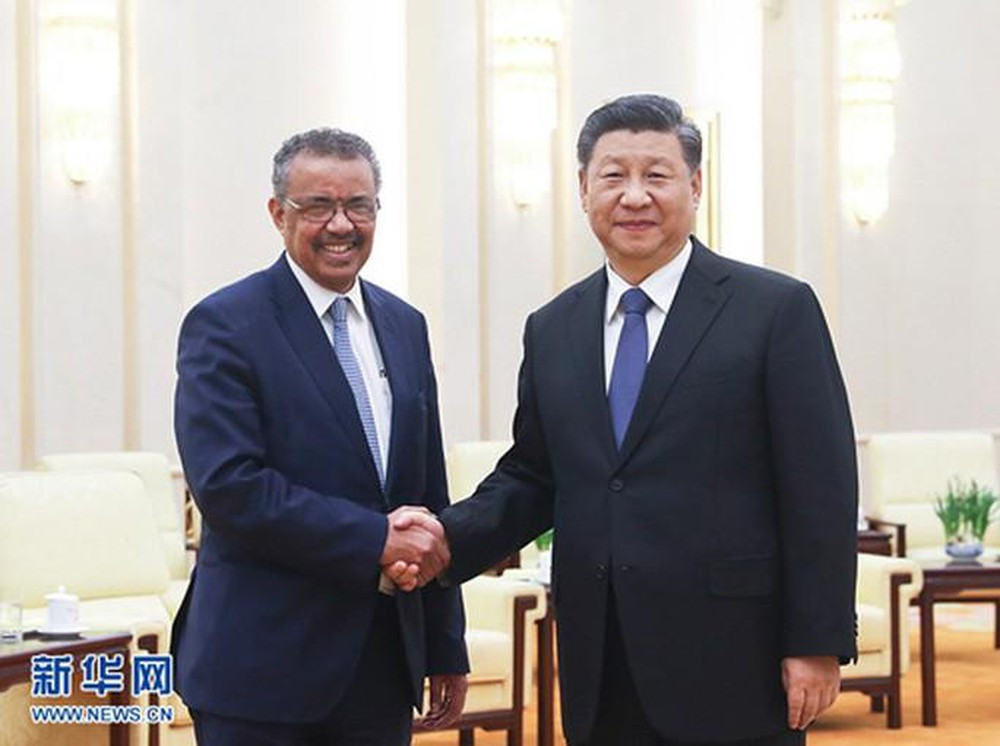 |
| WHO Director-General Tedros Adhanom Ghebreyesus shakes hands with President Xi Jinping during a meeting in Beijing on January 28. Photo: News.cn |
Some neutral observers say that the WHO is undeniably not a perfect institution, but the organization may not be entirely to blame for its slow response to the current health crisis, as the US has accused it of. That sympathetic assessment comes from considering the WHO’s capabilities and the organization’s difficulty in approaching individual country policies. It may partly appease the public anger over the pandemic, but it will hardly help the WHO chief overcome the dual challenges of his tenure./.

